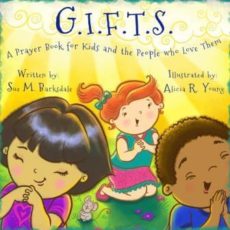For the Love of Children
Original price was: $15.99.$10.99Current price is: $10.99.
Carefully selected from Mr. Moody’s sermons at home and abroad, it is hoped that these true and wonderful stories may prove of special and personal interest to readers of all ages.
| Quantity | Discount |
|---|---|
| 10 - 99 | 20% |
| 100 + | 40% |
Share this product
Previous Title: Moody’s Child Stories
Carefully selected from Mr. Moody’s sermons at home and abroad, it is hoped that these true and wonderful stories may prove of special and personal interest to readers of all ages. As a bonus, this book also contains an overview of Moody’s life and ministry. In the interest of the Savior’s cause, the volume is dedicated especially to the children of America.
About the Author
Dwight L. Moody, determined to make a fortune, arrived in Chicago and started selling shoes. But Christ found him and his energies were redirected into full-time ministry. And what a ministry it was. Today, Moody’s name still graces a church, a mission, a college, and more. Moody loved God and men, and the power of a love like that impacts generations.






1 review for For the Love of Children
For the Love of Children by D.L. Moody contains over 100 stories from Mr. Moody’s work with children as well as stories with children protagonists. This collection also contains a mini biography titled The Story of Moody’s Life.
Many of Moody’s stories for and about children contain the theme of a prodigal son of sorts. Moody claims the love of God to be like the love of an earthly father and mother: God will not cast out those children who return to him.
His stories also contain the strong belief that once parents and children repent, their poverty ceases, the drinking/abuse stops, or someone gets well. In other stories he strongly suggests the death of children or parents ultimately brings the unsaved family member unequivocally to God.
I do not share D.L. Moody’s opinion here as the book of Job comes to mind wherein pestilence, disease, and poverty come upon a righteous man and his family. Matthew 5:45 also came to my mind during my reading, “…For he maketh his sun to rise on the evil and the good, and sendeth rain on the just and the unjust.”
This collection contains contradicting stories when Moody talks about the punishments he gave to his own children like refusing to allow his daughter to kiss him until she repented of wrongdoing. In other stories Moody lauds and praises the parents who display affection for their children who have not repented in hopes of bringing them to repentence.
It could be 19th century culture wherein Moody relates harsher stories of child discipline. After all, the secular fairy tales from this time period are also wraught with harsh actions with children protagonists.
It would have been nice to have a 19th century language and collequial guide for terms like “working with the trowel when building was brisk” and “tippling” to name a few examples.
The book was a bit redundant with repetitive stories almost word-for-word in the collection and again reiterated in Moody’s Life Story.
A note should also have been made for the issue of race in America in the 19th century as many comments contained in the book would now be considered derogatory.
The stories I did enjoy explained the history behind hymns still sung today in churches: Hold the Fort and Let the Lower Lights Be Burning.